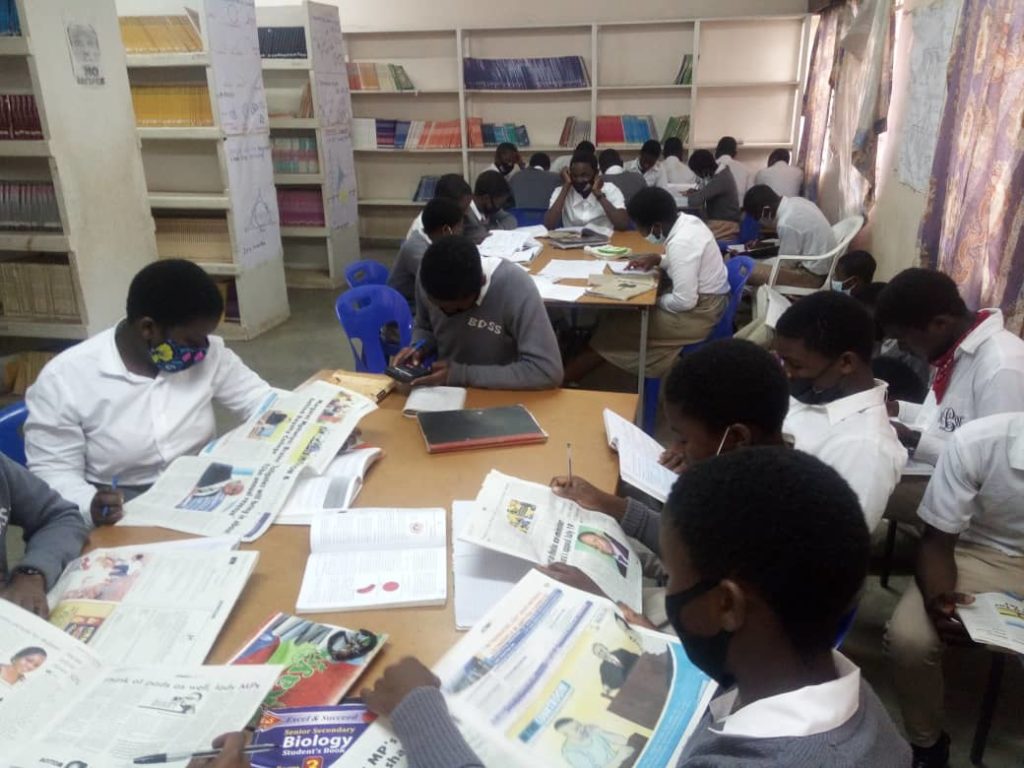
The challenge that the project addresses
Most students perform poorly in examinations because they cannot express themselves effectively in English which is the official language for education. This affects their ability to contribute effectively to public discussion and national development. Technology has transformed public discourse by taking conversations online. The political economy of social networks has seen English being the main language of communication. Thus, people who cannot write, read, and speak English fluently are automatically excluded from contributing to online discussions and national development.
What is your project doing to respond to this challenge?
Tiwerenge is designed to improve academic performance by promoting reading culture among students. This is being done by exposing them to exciting reading materials to make them enjoy reading various documents to improve their vocabulary. This helps them to learn to read and understand information written in English and use it for various purposes. We are doing this by distributing free newspapers and magazines in schools. Most schools have no libraries and textbooks. Students read to pass examinations and public libraries are deserted because people are not used to read for knowledge. We use donations from well-wishers to buy the newspapers and magazines. We also work closely with the schools to ensure the reading materials are accessible to students. We want youths who can read and participate effectively in public discussion and decision-making processes. The majority of Malawi’s electorate are youths. They cannot make good decisions if they are not informed. We want them to follow current affairs and make informed choices during elections and use the knowledge and skills to pass examinations. Thus, Tiwerenge is creating a generation of youths who enjoy reading for knowledge, and can participate in public discussions and national development and communicate their ideas effectively.
Tiwerenge project targets all primary and secondary schools in Malawi. However, due to funding issues, only 43 schools with a combined population of over 55 000 students are currently benefiting from the initiative. Each school has a Tiwerenge Club which ensures the weekly newspapers or magazines have been dropped in the library and every student has access. Thus, the main beneficiaries are students. However, teachers also benefit from it socially, professionally, and academically. They say Tiwerenge has given them access to current affairs and improved the way they teach which has increased students’ performance in languages during national examinations.
Describe the project's impact
Tiwerenge project has taken national newspapers to rural areas where people have never had a chance of accessing a newspaper within the first 24 hours of its publication. This is bridging the information gap and exposing citizens to timely information. The 2022 Tiwerenge evaluation report shows teachers and students are finding Tiwerenge very impactful as they are exposed to new information every week. Teachers are using newspapers to teach poetry, short story writing, and comprehension which are examinable in national examinations. They say student performance in language subjects in national examination is improving. Students have testified how fiction stories have taught them how to read long text. Some have been inspired to write their own short stories and poems which were later published in national newspapers. Headteachers say students are now used to reading newspapers every week which means they are slowly developing a reading culture. Globally, print newspapers companies are closing down due to poor business. We have created a new market and publishers are already exploiting it and reframing their content to accommodate students. Thus, we’ve saved businesses and jobs. Internet access in Malawi is only 15%, thus, the country still needs print newspapers to complement broadcast media.
